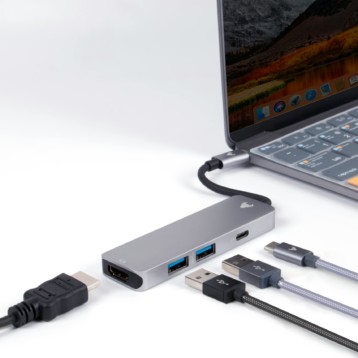
There are dozens of technologies out there, all geared to assist mobile app development service providers achieve top-notch outcomes for their clients. Such tools cover every aspect, including speed optimization, user experience enhancement, and code creation and debugging.
Let’s examine 20+ crucial tools that mobile development services use to do their work effectively.
1. Cross-platform app development frameworks
Cross-platform tools help to use shared chunks of code across several platforms. Here’s an expanded look at the top frameworks used by IT companies:
- React Native. This framework works on JavaScript to build applications with a truly native feel for both iOS and Android. It offers extensive pre-built components, supporting rapid development cycles while maintaining a high-quality user experience.
- Flutter. Google’s Flutter uses Dart and a robust rendering engine. It produces visually impressive, natively compiled apps for mobile, web, and desktop. The “hot reload” feature allows mobile app development service providers to iterate quickly, making it ideal for visually rich, UI-focused projects.
- Ionic. A hybrid framework built on web standards—HTML, CSS, JavaScript. It integrates smoothly with Angular, React, or Vue, leveraging existing web development skills. It supports swift prototyping while maintaining cross-platform functionality, appealing to those familiar with front-end development.
- Xamarin. Part of Microsoft’s .NET ecosystem, Xamarin allows developers to write native apps using a shared codebase in C#. It’s an asset for teams accustomed to .NET, offering native API access and ensuring uniform behavior across platforms.
- NativeScript. This framework uses JavaScript for direct native API access, with seamless integration options for Angular and Vue. It’s ideal for developers needing precise control over UI elements while leveraging familiar web development stacks.

An extended list of cross-platform tools
source: medium.com
2. Integrated development environments (IDEs)
IDEs provide coding, testing, and deployment tools to expedite mobile development. Some popular tools include:
- Xcode. Swift and Objective-C are supported in Apple’s iOS and macOS IDE. It is essential for creating iOS apps because of its features, which include Interface Builder, simulators, and TestFlight integration for testing.
- Android Studio. Google’s official Android IDE. It supports Kotlin and Java, with tools like emulators, layout editors, and profiling features. Its integration with the Android SDK simplifies development and testing.
- Visual Studio. Microsoft’s IDE with Xamarin integration for cross-platform apps. It supports C# and provides robust debugging, testing, and version control. Ideal for teams using .NET to build apps across platforms.
3. Hybrid app development platforms
Hybrid platforms use web technologies for cross-platform app creation. Key frameworks include:
- PhoneGap / Apache Cordova. Open-source framework using HTML5, CSS3, and JavaScript, enabling apps to run across multiple platforms with one codebase.
- Adobe PhoneGap. A cloud-based build system built on Cordova, offering third-party plugin support for added functionality.
- Sencha Ext JS. JavaScript framework for developing mobile and web apps with an extensive UI component library, ideal for building complex interfaces.
4. No-code / low-code app development platforms
These platforms simplify app creation with minimal coding, ideal for quick deployment.
- Swiftic. iOS app builder with a drag-and-drop interface, suitable for small businesses looking for rapid app development.
- BuildFire. Offers customizable templates and modules, enabling users to build apps without coding experience.
- Appy Pie. A versatile drag-and-drop builder that supports multiple platforms, enabling fast and accessible app creation for various use cases.
5. Game development engines
Game engines are specialized for building interactive and engaging apps across platforms. Two popular tools include:
- Corona SDK. Optimized for 2D game creation using Lua, known for its high performance and lightweight nature. The tool is ideal for rapid game development.
- Unreal Engine. A powerful game engine known for its advanced graphics capabilities and real-time rendering. It supports C++ and Blueprints for visual scripting, making it suitable for both complex and visually rich game projects.
6. Backend and cloud services
These mobile app development services provide essential backend support for mobile apps.
- Firebase. A comprehensive BaaS offering real-time databases, cloud storage, authentication, and analytics. Firebase simplifies backend management for app developers.
- AWS Amplify. Amazon’s cloud-based service provides backend features like authentication, APIs, file storage, and hosting, designed for scalable and secure app development.
- Heroku. A cloud platform that supports various programming languages. It offers easy deployment, scaling options, and backend services like databases and monitoring, suitable for rapid app development.
7. Rapid app development tools
Tools designed for quick mobile app development and cross-platform compatibility.
- Appcelerator. JavaScript-based platform with built-in mobile analytics and cross-platform support, streamlining app deployment.
- B4A (Basic4Android). A rapid development environment using simplified programming for efficient Android app creation, ideal for quick iterations.
- OutSystems. A low-code development platform that accelerates app creation with drag-and-drop functionality and reusable modules, suitable for building scalable enterprise-level applications quickly and efficiently.
8. Testing and debugging tools
Testing and debugging help streamline the testing process, provide detailed insights, and optimize overall app performance.
- Appium. An open-source program for automatically testing mobile applications for iOS and Android. It offers versatility and simplicity of integration by supporting a wide range of programming languages and frameworks.
- TestFairy. A platform that allows developers to detect problems more quickly with its comprehensive reports, which include crash reports, logs, and videos of app sessions.
- Charles Proxy. A debugging tool used for analyzing network traffic between mobile apps and servers. It’s invaluable for spotting issues related to APIs, authentication, and data transfer in real time.
- Bugfender. This tool logs app data and user interactions, offering insights into bugs that may not be easily replicable. It works offline and logs data efficiently, ensuring comprehensive debugging support.
This list is just the beginning — there are countless other tools mobile app development service providers use to create top-notch applications. If you’re interested in exploring more, check out professional resources like industry blogs, app development service forums, and specialized websites such as Stack Overflow or GitHub.










